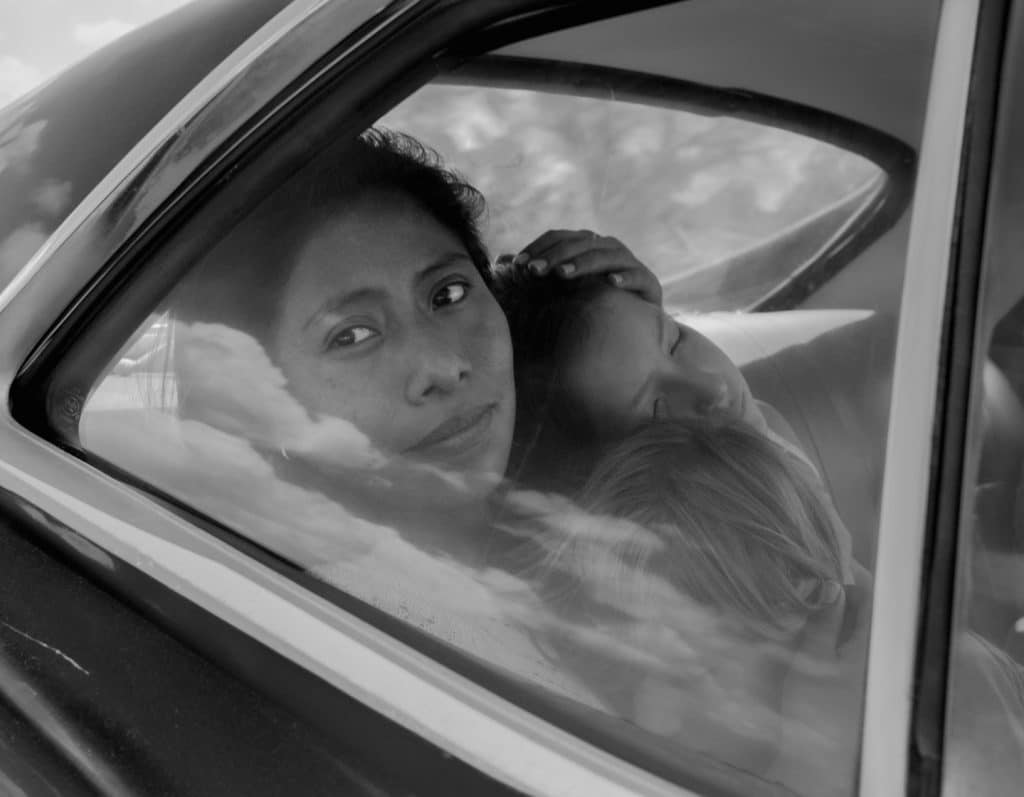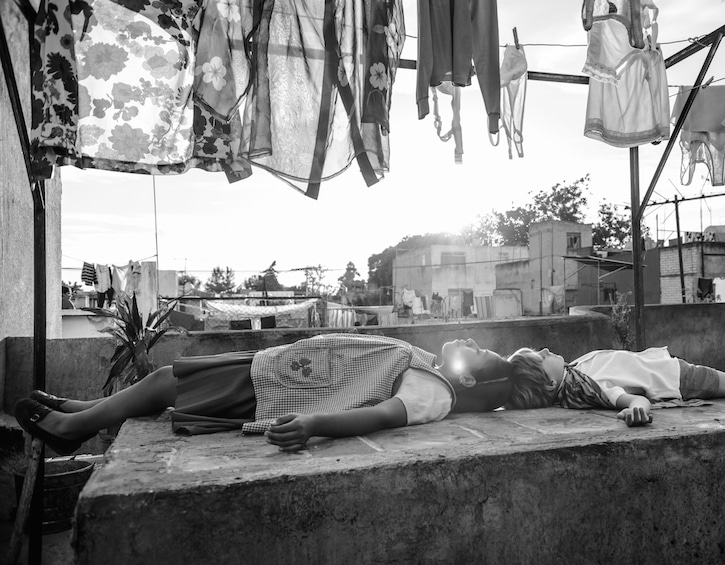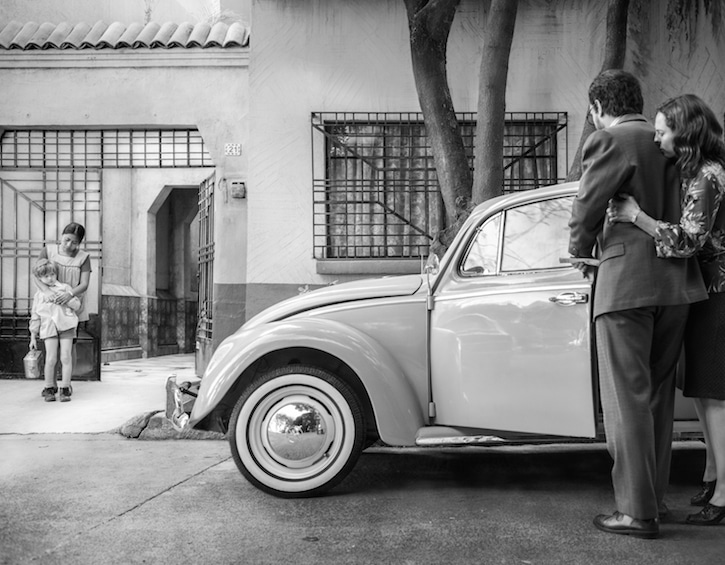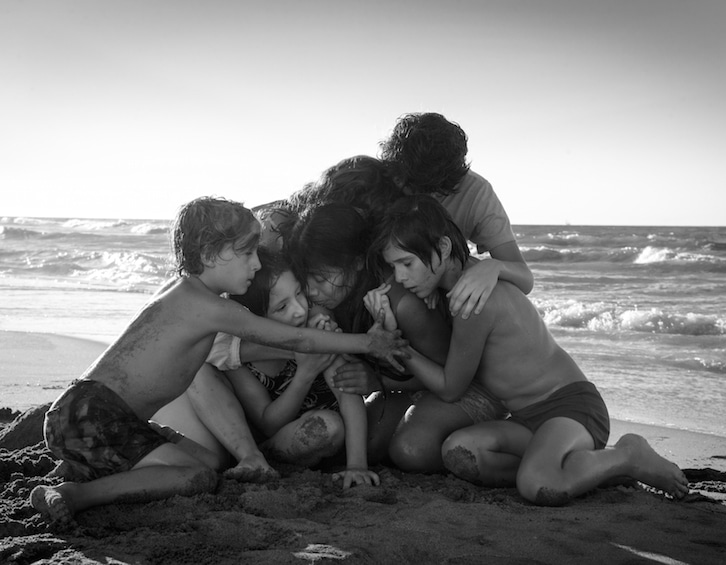
ROMA may not have won Best Picture at the Oscars, but it’s an undeniably beautiful and moving film that portrays the vital role domestic helpers play in our families
Note: We wouldn’t call them spoilers, but some plot points are discussed below!
When I told my husband that ROMA director Alfonso Cuarón said the much-lauded, semi-autobiographical film (which you can watch for free on Netflix!) was dedicated to the women who raised him – in particular the domestic helper who lived with his family throughout his childhood – he looked at me a bit skeptically.
“So you’re saying this is basically like if Tad [our 18-month-old toddler] made a movie for Leylani [our helper]?”
Well, yeah. Any of us should be so lucky to create such a lovely and moving tribute to the women who do so much to support our families.
Read more: ‘Remittance’ is an honest, heartbreaking depiction of the challenges Filipina helpers face

In many ways, despite the fact that it’s in Spanish and set in Mexico in the 1970s, watching ROMA felt like I was watching a film of our own life. A tiny, sensibly dressed woman with a wide smile, long black hair, and seemingly infinite patience cares for an unruly brood of light-haired children. She stands in her rooftop “yard” – amidst all the hanging laundry – and shouts to the other maids next door and across the way in her provincial language. As a school bell rings, maids stream out of the school gates, holding the hands of their tiny charges. Only late at night – once the kids are tucked in, the dishes are done, and the living room has been tidied for a final time – can she have time for herself, giggling with a friend while doing some exercise.
That Cuarón can recall and recreate these vivid details decades later is a marvel; that first-time actress Yalitza Aparicio – who plays the family’s maid, Cleo (Manita to her friends) – can convey multitudes of emotion in so few words is nothing short of astonishing. One critique of the film has been that Cleo is a bit of a blank slate, that although the film focuses on her she’s not given enough agency or space to truly express her thoughts and desires. I understand that and agree to a point, but it’s also true that Cuarón treats his subject with a high degree of sensitivity and tenderness.
The film is so achingly beautiful and undeniably sympathetic to Cleo’s near-impossible balancing act, which is all-too-familiar to anyone who’s seen the burdens domestic helpers bear between caring for children, cleaning houses, cooking meals, supporting their own families back home, and dealing with their own personal dramas and dreams. Honestly my biggest gripe with the movie is its cliched take on some of the problems women face. Of course shy Cleo gets pregnant the first time she has sex with someone, and of course her water breaks during a riot. This aspect of the film almost feels gratuitously heartwrenching. Someone with so much love to give deserves better. In many ways her entire pregnancy storyline feels like a trope, though I did appreciate seeing how supportive her female employer – and her doctor – were of her plight.
Read more: What it feels like to leave your children and work abroad

The movie also captures the often complicated relationship between mothers/female employers and domestic helpers. It is sensitive and nuanced in its portrayal of Cuarón’s own mother — who both in real life and in the film was abandoned by a philandering husband. She’s never a one-dimensional evil boss or uncaring parent (as in The Nanny Diaries, for instance); she clearly loves her children but is emotionally distraught and distracted, and also works a full-time job.
Read more: ‘A Yellow House’ takes a refreshing look at what it means to be a working mother
I saw myself in a scene where the mother – in a stressful moment – in turn vents her emotions by snapping at Cleo, who simply takes it. I’d like to think we treat our helper well and have a very close relationship, but I’d be an idiot to not recognize the unbalanced power dynamic.
It’s certainly something I don’t ever want to abuse, yet I saw myself again when the mother tells the kids “Cleo is going on vacation with us, you can’t make her work!” only to then see her schlepping suitcases and bathing the kids as they get ready for bed. In the moments just before the movie’s climactic scene, the mother goes off with the oldest son and leaves Cleo to watch the youngest three at the beach, distractedly telling her (as I’ve done many a time) “Just watch them quickly, I’ll be right back…” Cleo, of course, never has the ability to take similar leave, to pursue a whim or deal with only the most pressing issue at hand.

Throughout the movie, Cuarón shows us that stoic, unflappable Cleo is the centering force: during an earthquake while others cower on the ground and pray, she stands resolutely, keeping her eye on a tiny baby. In one of the movie’s funnier moments, she instantly cops a challenging yoga pose and calmly maintains her balance while everyone around her wobbles and trips. She bravely rushes into crashing waves without a thought to rescue her charges, even though she doesn’t know how to swim. And in the movie’s final scene (right after one of the kids asks Cleo for a smoothie, which also gave me a laugh because, well, “smoothie” was one of my baby’s first words, which he learned by toddling into the kitchen and pointing to the blender), Cleo ascends a stairway up to her rooftop room. The way Cuarón has framed it, she might as well be an angel floating up to heaven.
I’ve seen some people in the U.S. (which I assume is a big part of ROMA’s intended audience) say that they simply don’t “get” the movie – that it’s too slow and artsy, and doesn’t really say anything. We in Singapore are lucky, though – I feel like the movie speaks directly to us on a level that those who haven’t lived with helpers could never fully appreciate. The system is flawed and the result of vast economic inequality and in a perfect world wouldn’t exist, and yet it’s our current reality. At the very least we can try to change the system from within through kindness, empathy and education. One thing is for certain, though: we are NOT white saviours (another particularly harsh read on the film).
Some day I hope to show Roma to my children to help explain how truly special our helper was to our family, how instrumental she was in raising them. Perhaps, like Cuarón, they’ll have indelible memories of this anyway, but in my view the film’s greatest achievement – besides its breathtaking cinematography, for which it did win an Oscar! – is its ability to capture the loving relationship between children, a domestic helper, and even a grateful, highly imperfect employer – all of whom are just doing their best.
Roma is Rated (M) for Mature for brief nudity, violence, and the depiction of death. The movie is primarily in Spanish with English subtitles, and available to stream on Netflix. Running time is 2 hours, 15 minutes.
Other films to watch:
Remittance
The Helper (Documentary) – Click here for screening details on 7 & 10 March!
Ilo Ilo






 View All
View All





 View All
View All











 View All
View All








